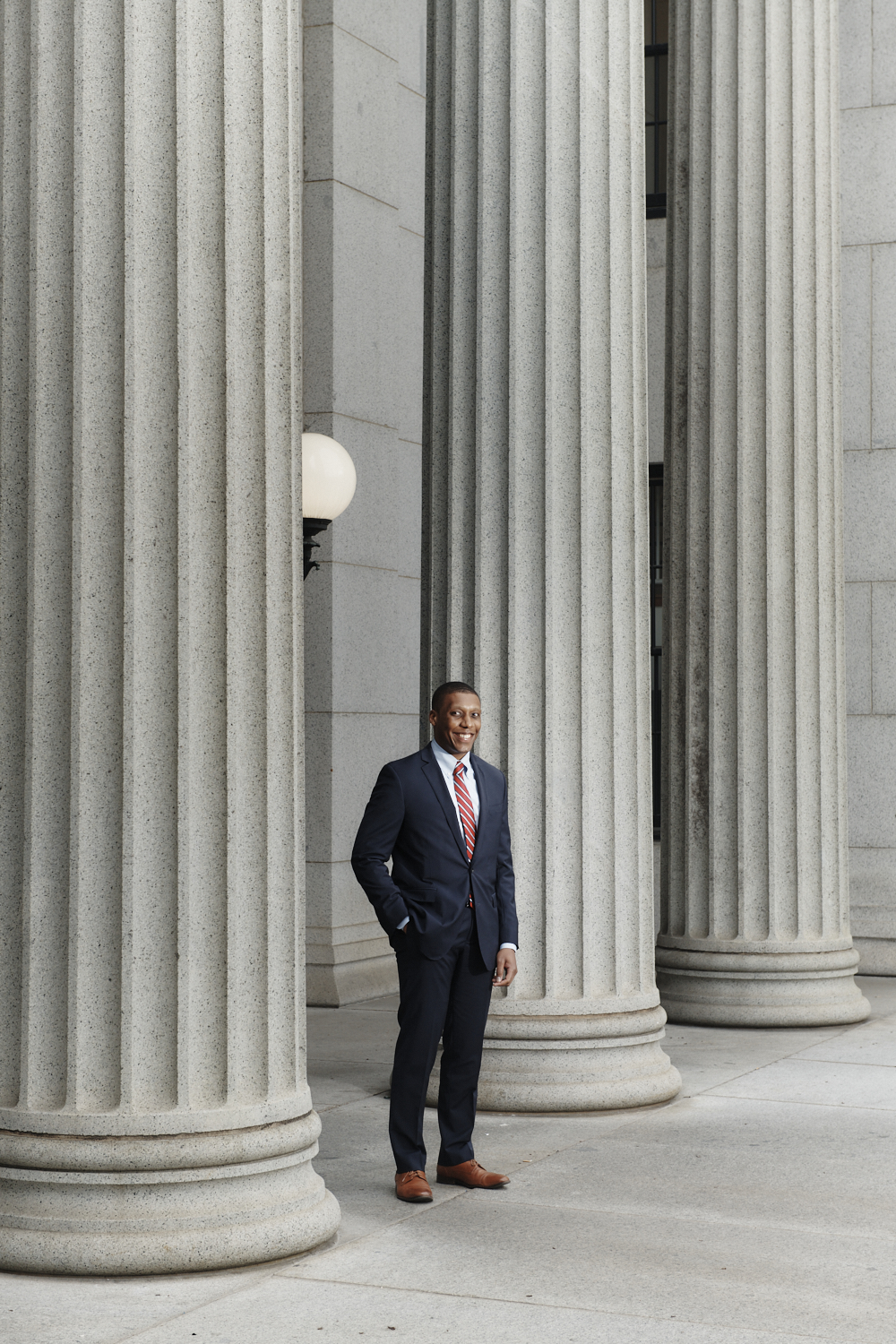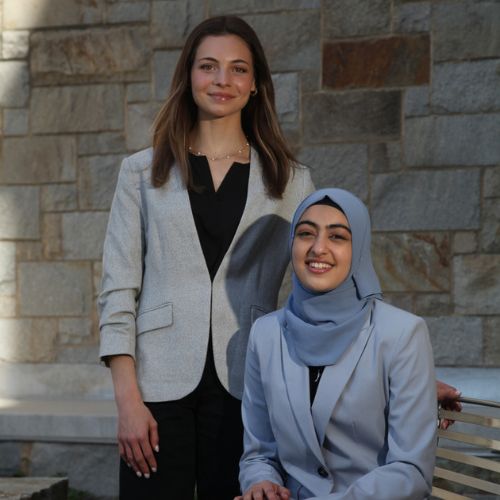Originally published in the inaugural edition of Carroll Capital, the print publication of the Carroll School of Management at Boston College. Read the full issue here.
When Aaron Horne ’17 was growing up in Pittsburgh, he rode a bus from his city neighborhood through eight or nine distinct neighborhoods to a suburban school every day. Along the way, he’d ask himself: Why do these places look different? Why are the building styles unique? Do people like living here? On vacations, Horne traveled to Cleveland, Washington, DC, New York, Philadelphia, Seattle, and Charleston. “Getting exposure to other places made me think about how communities came to be and created an interest in how places are created,” he says.

Aaron Horne '17 stands on the steps of Courthouse Lofts in downtown Worcester, a renovation project that offers tiered rental rates based on residents' income.
When he arrived in Chestnut Hill, Horne thought he might pursue a career in architecture or urban planning. Then, in the fall of his sophomore year, he took a class, Real Estate and Urban Action, created and taught primarily by Joseph E. Corcoran ’59, H ’09. Corcoran had grown up in Dorchester during the Great Depression, joined the Army, and attended Boston College on the GI Bill before launching a career transforming tired public housing projects into thriving mixed-income residential developments. Late in his career, Corcoran began teaching a course at the Carroll School of Management.
“The course taught me how real estate could be a way to help people who may not have the means or the best opportunities,” Horne says, tracing his path toward a career focused on affordable housing.
This is precisely the vision that Corcoran had in 2014, when he made the gift enabling the creation of the Joseph E. Corcoran Center for Real Estate and Urban Action. The center, led by Executive Director Neil McCullagh, offers eight undergraduate courses, a case competition, a summer internship
program, guest lectures, and other programming. “We want students to understand the responsibility and power that come with a real estate education,” says McCullagh, who remained close to Corcoran until his death in 2020.
Hundreds of students have learned those lessons, among them Colin Cross, MCAS ’19. He grew up in McKinney, Texas, and from the time he arrived in Boston, he was fascinated by the variety of housing and cityscapes. “I made an effort to break out of the ‘BC bubble’ and get into the city to explore neighborhoods,” Cross says. As a junior, he applied for a Corcoran summer internship and was assigned to the City of Boston’s Department of Neighborhood Development, where he inventoried city-owned parcels to determine which ones might be appropriate for development.
“Getting exposure to other places made me think about how communities came to be and created an interest in how places are created.”
“I was really encouraged to get out and understand the neighborhood context—they didn’t want me sitting at my desk on Google Maps,” Cross says. Upon graduation, he joined California’s Department of Housing and Community Development, where he worked on projects to convert hotels into affordable housing for the homeless. In November 2022, Cross moved to the nation’s capital to join the US Department of Housing and Urban Development.

Like Cross, Horne began tackling urban housing problems as an undergraduate. After his junior year, he landed a Corcoran summer internship in Mattapan, researching property ownership and documenting the shortcomings of absentee landlords. During the fall of his senior year, he took a real estate finance class taught by Senior Lecturer Edward Chazen, who offered to help Horne with his job hunt. Chazen introduced him to leaders at Trinity Financial, a Boston-based, community-focused real estate developer. Horne accepted a job as an assistant project manager.
Today, one of his accomplishments (together with colleagues) is anchoring an intersection indowntown Worcester. Courthouse Lofts required a $73 million renovation to convert an abandoned courthouse, parts of which dated to 1840, into 118 apartments offered at tiered rental rates based on residents’ income. Walking through the hallways one morning, Horne pointed out how they’d retained vestiges of the building’s prior life: One hallway contains an antique legal file cabinet, one apartment wall is lined with bars from a courtroom’s holding cell, and a soaring lounge area contains the judge’s bench. “We didn’t want people to forget that this building was a courthouse for many years,” Horne explains.
A few miles away, Horne has started working on a new project where Trinity plans to demolish 372 public housing units and replace them with 527 higher-quality, but still affordable, apartments. Although Horne’s day-to-day work varies—arranging financing, seeking approvals, choosing appliances—the most gratifying aspect remains constant. “Seeing families move into these homes and be appreciative of the opportunity to find good quality housing where they feel safe—that will never not be meaningful to me,” he says.
Jennifer Corcoran, MCAS ’13, granddaughter of the Corcoran Center’s benefactor, understands that sense of gratification. Corcoran was a philosophy major, unsure of her career goals—this was before the Corcoran Center began in 2014. After graduation, she joined the family business and is now a project director at her father’s company, Joseph J. Corcoran Company.
“What I’m really drawn to is the transformation of communities and how people advance their lives,” she says. These days, when she returns to campus, she sees the impact of an education blending real estate with urban action. “I’m really jealous of the students at the Corcoran Center today,” she says. “They’re going to know so much more than I did when I was going into the business.”





